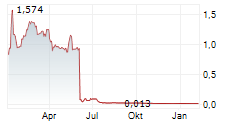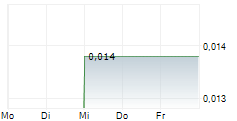
PRESS RELEASE
Decarbonizing the aviation sector: Global Bioenergies extends its technological process to the production of e-SAF
- a unique e-SAF with a record selectivity rate of 95% compared to existing technologies
- a complementary approach to ASTM-certified SAF technology, substituting a plant-based resource for a synthetic resource
Evry, 10 July 2024 - 05:45 p.m.: Global Bioenergies announced today that it has adapted its process for the conversion of plant resources into Sustainable Aviation Fuels (SAF) to produce e-SAF, using acetic acid as a resource.
e-SAFs are derived from the combination of (i) CO2 and (ii) hydrogen produced from renewable electricity: acetic acid can be produced from these two elements alone. e-SAFs maximize decarbonation impacts and offer an alternative to bio-SAFs, whose production relies on the use of plant resources.
The e-SAF approach developed by Global Bioenergies stands out for its selectivity of over 95%, meaning that more than 95% of the molecules resulting from the process can be marketed as jet fuel. This selectivity exceeds that of other existing e-SAF technologies.
SAFs and e-SAFs are regulated by the European Union's ReFuelEU Aviation regulation. By 2030, aircrafts taking off from European airports will be required to carry on average in their tank:
- 4.8% bio-SAF, produced from plant resources, mandate which includes Global Bioenergies' bio-SAF process from plant resources, and
- 1.2% e-SAF produced from CO2 and low-carbon electricity, mandate which includes Global Bioenergies' e-SAF process.
Marc Delcourt, co-founder and CEO of Global Bioenergies, commented: "The prospect of producing not only bio-SAFs, but also e-SAFs, adds another string to our bow. In regions where plant resources are abundant (USA, Brazil, South-East Asia...), our bio-SAF approach will have an important role to play. In regions where plant resources are only available in limited quantities, our e-SAF approach will be deployed primarily: this is the case in Europe and North Asia in particular."
Eva van Mastbergen, Team Lead R&D at SkyNRG, said: "Given the growing global demand for SAF, driven by the ReFuelEU mandate and rising SAF ambitions, the industry must increase production and diversify technologies to convert various sustainable feedstocks into SAF. Following our successful collaboration on ASTM qualification of Global Bioenergies' SAF platform, we commend recent innovations supporting both bio-based SAF and e-SAF, advancing a more sustainable aviation industry."
A new resource for the process: acetic acid
Acetic acid ("AcOH") is well known to the general public as the acid in vinegar.
In summary, it involves feeding the bacterial strains producing isobutene (then transformed into SAF by simple oligomerization), no longer with plant resources, but with acetic acid.
Most of the 5 million tonnes of acetic acid produced every year is obtained by combining methanol and carbon monoxide, which can both be produced from CO2 and hydrogen. (Hydrogen can be produced by electrolysis of water using low-carbon electricity).
This approach is therefore in line with the specifications of e-SAFs, defined by the use of CO2 and low-carbon electricity.
AcOH, a new raw material for microorganisms
Microorganisms naturally break down sugar (usually six-carbon) into acetic groups (two-carbon), which are then converted into numerous other molecules useful to life (fatty acids and amino acids, in particular). Although AcOH is well known to micro-organisms, which produce it endogenously, these micro-organisms are not naturally organized to use it as a resource massively supplied exogenously.
It was therefore necessary to modify isobutene-producing strains so that they could accept AcOH, which has been successfully achieved in recent months.
e-AcOH, a resource that could soon be available on a large scale
A major player in the industrial production of AcOH is already producing e-AcOH based on CO2 captured from industrial effluent gases, combined with low-carbon hydrogen.
What stage of development has the e-SAF process reached?
The process is now moving from proof of concept to pre-industrial development.
At the same time, the performance of Global Bioenergies' bio-SAF process has improved significantly in recent months, and this progress has been transposed to the pilot scale. It will continue to improve over the coming months, to approach the theoretical optimum. The progress made on the bio-SAF process will be transposed to the performance of the e-SAF process.
The competitive advantages of Global Bioenergies' e-SAF process
Today, there is no industrial-scale production of e-SAF, and no aircraft has yet flown fully on e-SAF.
Two families of e-SAF production processes are currently being developed by various players. Both are based on chemical approaches:
- The first uses the Fischer-Tropsch synthesis process,
- The second involves the production of e-methanol, which is then converted into e-SAF.
In both cases, the selectivity of the process to SAF is lower than Global Bioenergies' e-SAF process, meaning a larger fraction of side-products will be marketed as e-gasoline or e-diesel, at a lower price.
Global Bioenergies' e-SAF process provides an answer here: over 95% of the products from its process correspond to the aviation stream, which would benefit the industrial profitability of the corresponding plants.
Conclusion
This breakthrough in biology paves the way to a new e-SAF process, distinguished from other e-SAF technologies by its very high selectivity. It adds a valuable string to Global Bioenergies's bow, as it ensures a diversity of supply sources and a highly differentiated position in this emerging market.
About GLOBAL BIOENERGIES
Global Bioenergies substitutes products of fossil origin with products of natural origin. In their quest for naturalness without compromising on performance, the cosmetics players are the Company's first customers. By 2027, the Company will be operating its innovative process in a large-scale plant. By 2030, the Company plans to become a leader in the huge emerging market for sustainable aviation fuels, in order to fight against global warming. Global Bioenergies is listed on Euronext Growth in Paris (FR0011052257 - ALGBE). L'Oréal is its largest shareholder, with a 13.5% stake.
About SkyNRG
SkyNRG is a global leader in Sustainable Aviation Fuel (SAF). Since 2009, the company has been scaling up SAF demand and production capacity for the industry to meet its 2050 net zero commitment. SkyNRG was the first in the world to supply SAF on a commercial flight flown by co-founder and shareholder KLM in 2011. To date, SkyNRG has supplied SAF to over 40 airlines across the world and is now developing dedicated production facilities to support the shift from fossil jet fuel to sustainable aviation fuel.
Contacts
| GLOBAL BIOENERGIES +33 (0)1 64 98 20 50 martin.stephan@global-bioenergies.com (mailto:martin.stephan@global-bioenergies.com) Follow our news Receive information about Global Bioenergies directly by subscribing to our news feed on https://www.global-bioenergies.com/inscription-newsletter/ (https://www.global-bioenergies.com/inscription-newsletter/) Follow us on LinkedIn Global Bioenergies (https://www.linkedin.com/company/global-bioenergies) | NewCap - Investor relations Louis-Victor Delouvrier Aurélie Manavarere globalbioenergies@newcap.eu (mailto:globalbioenergies@newcap.eu) +33 (0)1 44 71 94 94 NewCap - Media relations Nicolas Merigeau globalbioenergies@newcap.eu +33 (0)1 44 71 94 98 |
Attachment
- Global Bioenergies_e-SAF process_EN_DEF (https://ml-eu.globenewswire.com/Resource/Download/830604e1-af36-4e35-b342-6357e578b18d)




